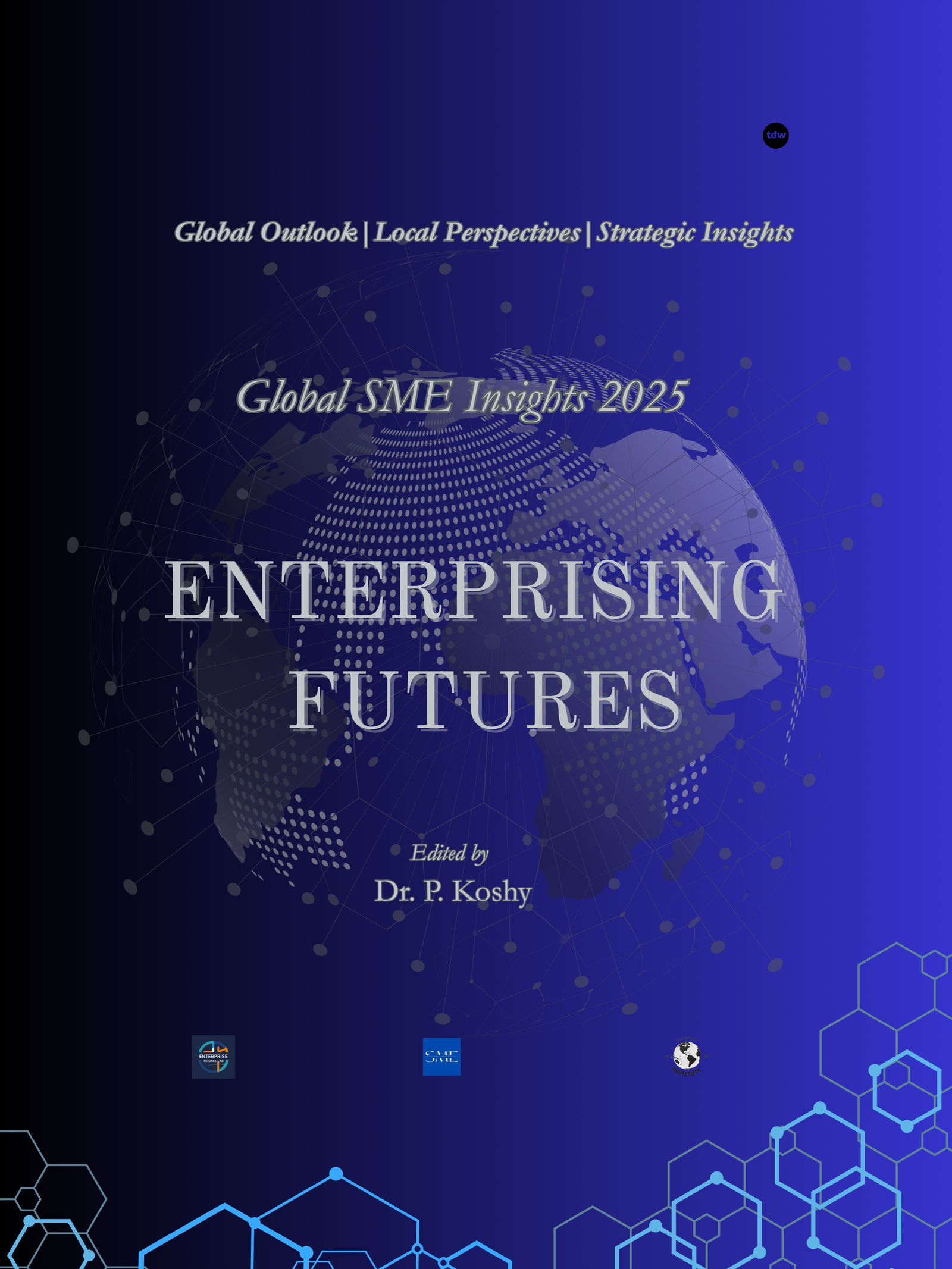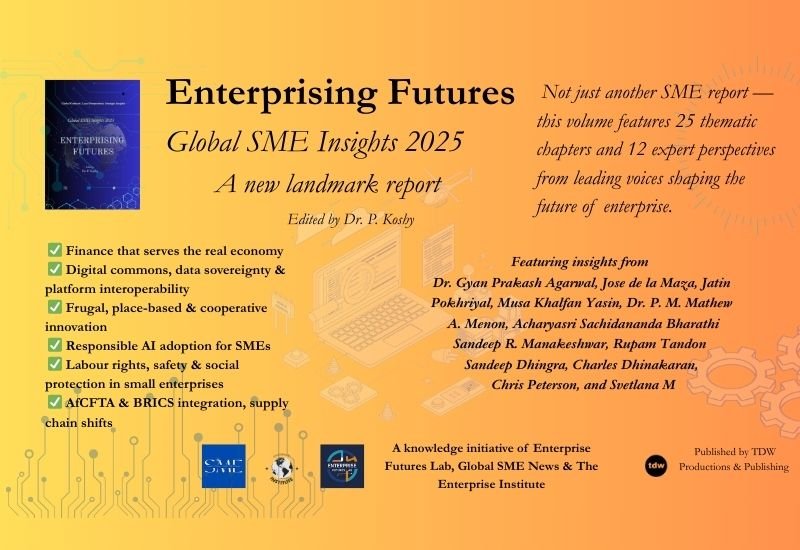New Delhi, India – August 2025 – A new 276-page flagship report, Enterprising Futures: Global SME Insights 2025, published by TDW Productions & Publishing, calls for a fundamental rethinking of how small and medium-sized enterprises (SMEs) are supported in a rapidly changing global economy.
Drawing on 25 thematic chapters and 12 expert commentaries from leading voices, policymakers, entrepreneurs, and development practitioners, the report combines global outlook with local intelligence, mapping the systemic challenges and emerging opportunities for SMEs across Africa, Asia, and beyond.
This landmark publication features thought leadership from:
Dr. Gyan Prakash Agarwal, Jose de la Maza, Jatin Pokhriyal, Musa Khalfan Yasin, Dr. P. M. Mathew, A. Menon, Acharyasri Sachidananda Bharathi, Sandeep R. Manakeshwar, Rupam Tandon, Sandeep Dhingra, Charles Dhinakaran, Chris Peterson, and Svetlana M.

In his foreword, Dr. Gyan Prakash Agarwal, Secretary General, World Association for Small and Medium Enterprises (WASME) says, The businesses that will lead tomorrow are the ones brave enough to innovate, wise enough to collaborate, and resilient enough to adapt,”
Key Findings
- SMEs remain the backbone of the global economy – accounting for over 90% of all firms and a significant share of employment, but continue to face persistent structural constraints in finance, digital access, and participation in climate-aligned value chains.
- Digital readiness gaps are acute – Digital readiness remains a key challenge for many SMEs. While internet access and digital tool adoption are growing across regions, gaps persist, and even in digitally advanced markets, issues such as platform monopolies and limited interoperability can constrain SME autonomy.
- Sustainability is no longer optional – climate disruptions, ESG-linked compliance, and low-carbon growth are reshaping competitiveness. Localized green transitions, such as decentralized solar adoption and zero-waste production clusters, demonstrate viable pathways.
- Finance remains misaligned – rigid collateral requirements and generic financial inclusion schemes often exclude SMEs operating in informal or hybrid spaces. Peer-backed credit, seasonal lending, and trust-based finance models need institutional recognition.
- AI adoption is uneven – while AI can transform SME operations,skills gaps, infrastructure deficits, and capital constraints hinder uptake.
- Labour and protection gaps persist – a large share of SME-linked workers remain outside social protection systems. Portable benefits, occupational safety, and context-specific upskilling are critical.
Policy Recommendations
The report identifies five strategic priorities for 2025–2030:
- Sustainability as Core Enterprise Logic – align environmental goals with enterprise support through simplified ESG tools and climate-resilient strategies.
- Digital Infrastructure as a Public Good – invest in interoperable, open digital systems for commerce, payments, and logistics.
- Finance Aligned to Enterprise Realities – design capital instruments that reflect seasonal, informal, and trust-based models.
- Labour-Linked Enterprise Ecosystems – embed worker protection and skill-building into SME frameworks.
- Distributed Ecosystem Governance – empower cooperatives, producer groups, and local intermediaries.
Global and Local Voices
The volume features diverse perspectives, from AI governance and climate action to cooperative innovation and grassroots entrepreneurship:
“To rethink enterprise futures is to rethink the systems that sustain them—finance, policy, digital access, and equity.”
— Editorial Team, Enterprise Futures Lab
Enterprising Futures: Global SME Insights 2025 is a collaborative knowledge initiative of Enterprise Futures Lab, Global SME News, and The Enterprise Institute, with publishing support from TDW Productions & Publishing.
ISBN: 978-93-91828-77-6
Pages: 276 | Format: 7 x 10 inches
Available through Amazon and major booksellers worldwide.

